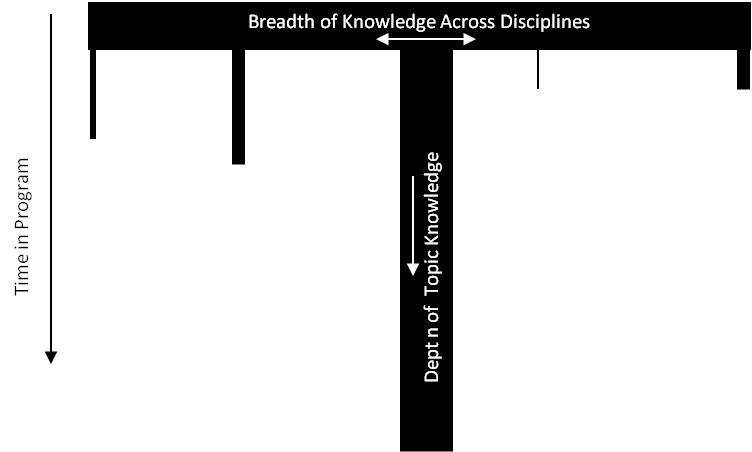About Us
Our Mission
Our mission is to become national leaders in organizational science scholarship, to achieve excellence in organizational science doctoral education, and, through both, ultimately advance employee and organizational health, well-being, and effectiveness.
Our Values
- Commitment to openness, honesty, forthrightness, and the highest standards of integrity and ethical professional behavior in all that we do
- Maintain a professional, collegial, respectful, and inclusive community
- Promote communication, cooperation, and collaborations between faculty members and between faculty members and students in this interdisciplinary program
- Promote the application of Organizational Science scholarship and methods to the improvement of the world of work by providing high quality Organizational Science consulting and outreach efforts; internships; and promoting public awareness of the field of organizational science
- Support Organizational Science students and faculty in their efforts to study, research, develop, apply, and teach the principles, findings, and methods of Organizational Science
- Value all types of high quality research from various disciplines be it qualitative, quantitative, lab-based, field-based, micro in-orientation, macro in-orientation, very basic, or very applied
- Maintain and foster our interdisciplinary foundation
- Value and recognize the importance of the science/practice model in our student training and the variety of career paths it may support
- Commitment to thoughtfulness, reflection, flexibility, and the rigorous scrutiny of ideas
Graduates of the program will be prepared to assume leadership roles as organizational scholars, researchers, and educators in academic institutions and as practitioners and policy makers in a wide range of public and private settings. By doing so, our graduating doctoral students will be further promoting our core mission to advance employee and organizational health, well-being, and effectiveness.
In 2012 we did a research study where we asked our students and faculty to use one word to describe the program on a number of dimensions. We then analyzed the data using WORDLE. Click the link for the results regarding how others describe the program’s culture, the people, the alums, and what makes us most unique.
To learn more about the program, please read the article published in the UNC Charlotte magazine for alumni and friends.
THE “T” MODEL:
Our guiding educational philosophy can be easily summarized through the words of Nicholas Donofrio, retired IBM Executive Vice President of Innovation and Technology: In 2002 Donofrio was recognized by the Institution of Electrical Engineers — the largest professional engineering society in Europe — with the Mensforth International Gold Medal for outstanding contributions to the advancement of manufacturing engineering. He was named Industry Week magazine’s Technology Leader of the Year. “The kind of people who will be best able to seize these opportunities are those I call “T-shaped” as opposed to “I-shaped.” I-shaped people have great credentials, great educations, and deep knowledge-deep but narrow. The geniuses who win Nobel prizes are “I-shaped,” as are most of the best engineers and scientists. But the revolutionaries who have driven most recent innovation and who will drive nearly all of it in the future are “T-shaped.” That is, they have their specialties-areas of deep expertise-but on top of that they boast a solid breadth, an umbrella if you will, of wide-ranging knowledge and interests. It is the ability to work in an interdisciplinary fashion and to see how different ideas, sectors, people, and markets connect. Natural-born “T’s are perhaps rare, but I believe people can be trained to be T-shaped. One problem is that our educational system is still intent on training more “I’s. We need to change that.”

Key Tenets of the T Model:
- Students understand and are open-minded to the breadth of Organizational Science knowledge and perspectives.
- Students navigate easily across disciplines and perspectives, make interconnections, seek transdisciplinary science and practice synergies where relevant, and can view micro, meso, and macro OS topics through many disciplinary lens simultaneously.
- Students are not “jacks of all trades and disciplines”. Depth across a key content area (or two) is essential to success.
- Depth and breadth within and across OS is a life-long pursuit. Doctoral training is just the beginning of this journey.